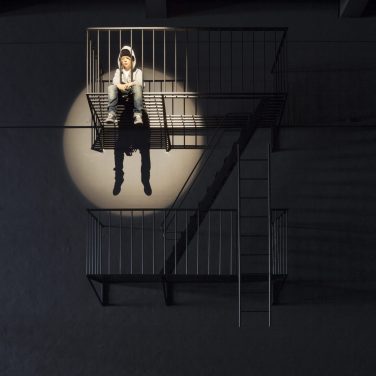A corridor leading to change
Rabbi Dalia Marks
 Gajus-Images ,Mint_Images - Envato Elements
Gajus-Images ,Mint_Images - Envato Elements
Rabbi Dalia Marks writes about the conflicts in the transition to the new year
One of the moments I find most moving about the Shabbat prayer occurs only once a month, on Shabbat Mevarchim, when the new month is announced. The public emissary stands facing the ark, holding the scroll, and announces the new month, asking for a blessing. Originally, this custom was meant to notify the public when a new month was about to begin, but it has been cast into pure prayer with a touching melody, where we pray: “May the Holy One, Blessed is He, renew it upon us and upon all His people, the family of Israel, for life and for peace, for joy and for gladness, for salvation and for consolation, and let us say: Amen.” This is recited eleven months of the year – but before the month of Tishrei it is neither recited nor mentioned.
The fact that throughout the generations, the month of Tishrei was not mentioned or announced, nor was it given the blessing of the new month, is interesting in light of the biblical instruction commanding us to have a “day of announcement” on the first of Tishrei, and bring its sacrifices along with the new month’s sacrifices of the seventh month (Book of Numbers, 29, 1-6). Was the beginning of the month not mentioned on the new year because the two contradicted each other, or because Rosh Hashana is similar in nature to the new month, and “swallows” it up?
There have been many explanations for why the month of Tishrei was deprived of its status. At first it was said that everyone knew when the new year began, and thus there was no reason to announce it. Another explanation was that we bless all the other months, but God is the one to bless the new year. But there is one more explanation, which is that we do not say a blessing in Tishrei in order “to confuse Satan”. The verse “blow the horn on the new moon, the full moon for our feast day” (Psalms 81, 4) was interpreted by the Magen Avraham as a call to cover up the month and hide it from Satan, so he wouldn’t cause harm.
The call to confuse Satan on the New Year is found in the Talmud, where it appears in the context of blowing the shofar: “Why does one sound a continuous blast (tekia) and then a series of short blasts (terua) when the congregation is still seated, and then again when they stand? In order to confuse Satan” (Talmud Bavli, Rosh Hashana, Chapter 16). I refer, of course, to the double blowing of the horn. How does this confuse Satan? Perhaps it confuses him because of the blows themselves, or maybe it shows him, as some interpreters have suggested, how fond Israelites are of their good deeds.
Sacred Depravity
Rosh Hashana is a festive moment, when we mark an end and a beginning. It’s a moment of transition, a liminal moment, where we are no longer in the passing year but also not quite in the new year, and at the same time we are in both. This kind of moment, by nature, inspires anxiety, and anxieties like these require solace. To answer this, the Sages have said: “Satan only attacks when in danger,” (Talmud Yerushalmi, Shabbat(. The role of Satan in Judaism is a profound dilemma we cannot sufficiently address here. But it’s important to note that by nature, transitional states evoke anxiety and fear of the unknown. These anxieties are often translated into fear of Satan or other demonic forces, and the need for defense against them.
This is especially true of life’s rituals: the breaking of the glass at weddings, for instance, is usually attributed to grief over the destruction of the Temple, but this is a very late interpretation (suggested for the first time in the 13th century by Rabbi Meir of Rothenburg). An earlier explanation is the desire for defense against evil forces. And this is how Rabbi Eliezer Horowitz explains this primitive interpretation: “Anyone who rises to greatness provokes Satan, and the custom of breaking the glass during the wedding means to give him what he deserves.”
Indeed, transitions and change often inspire anxiety and unrest, but they also entail special opportunities to correct our ways. When we walk through the hall leading from “may the year and its curses end” into “may the new year and its blessings begin”, let’s remember that this transition holds the potential for blessings and opportunities. British anthropologist Victor Turner (1920-1983), who studied transitional ceremonies in various cultures, said that those experiencing these ceremonies were in a state he calls “sacred depravity”, where we are nothing but primeval matter that has lost its old form but has yet to gain a new one. This condition, declares Turner, has an important cultural role – man, plucked from the ongoing flow of life, receives a chance to reexamine the reality of his life, which he takes for granted. It’s a specified period of time designated for reflection and creative thinking.

Long Garden Arch Passageway






